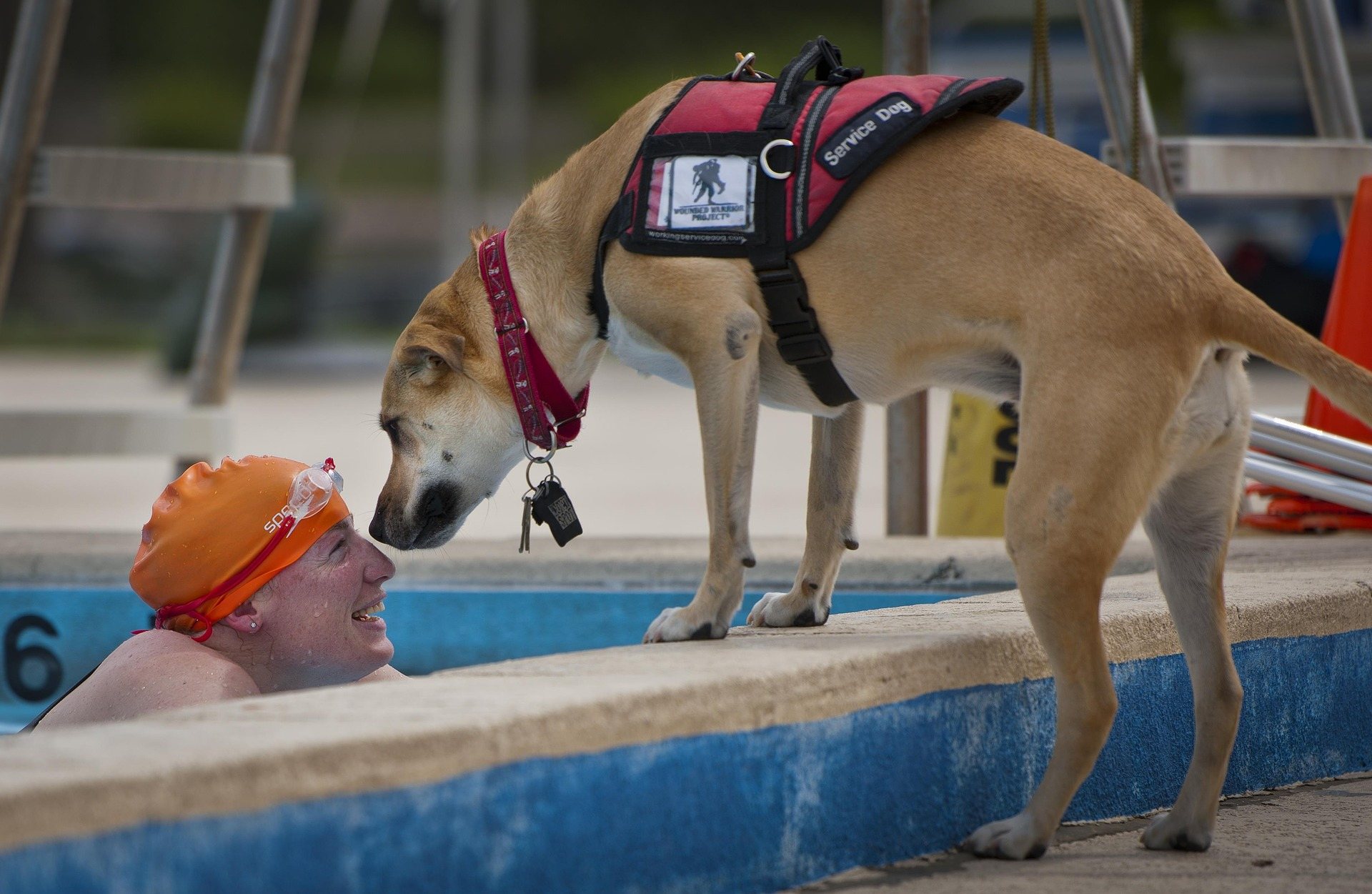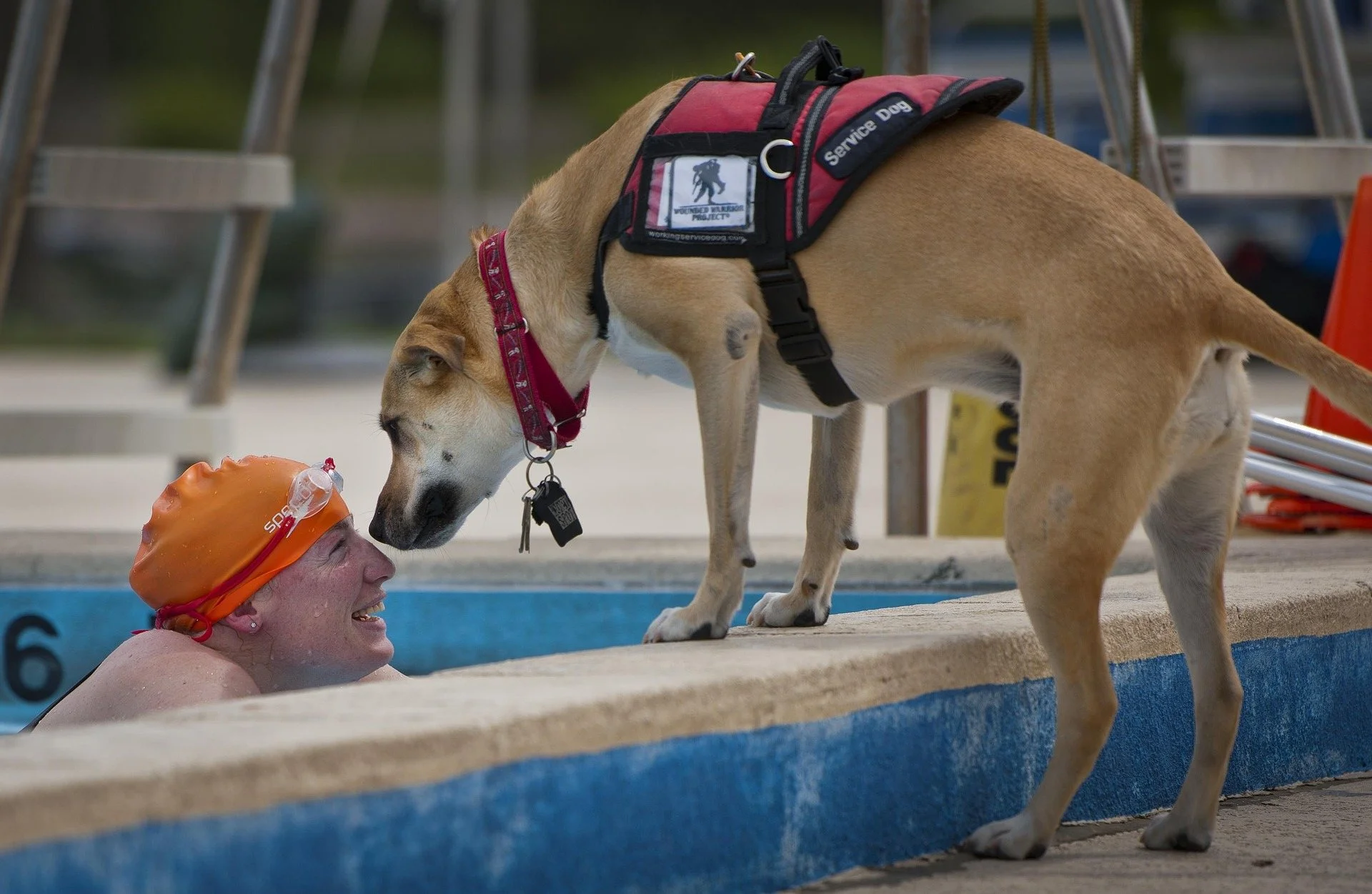What does a service dog do, to help the humans they are working with? This collaborative post shares a little bit about how dogs and humans support each other.

While we adore dogs for all the cute stuff they do, they are, in fact, capable of doing much more! Our beloved furry pals are highly trainable and they possess a keen sense of smell and hearing. These traits allow them to perform lifesaving tasks to help patients with critical conditions. Most pet dogs can be trained to perform everyday chores such as fetching the morning paper, guarding the house, and even herding sheep. Taking things up a notch, a service dog can also provide medical assistance that may end up saving their owners’ lives. The relation is mutually beneficial; as we take care of our best friends keeping them away from parasites with flea and tick medication, heartworm prevention (with chewables such as heartgard for dogs), and of course regular vet checkups, our beloved friends can save our lives too in many ways. In this post, we focus on 4 such ways dogs are saving lives.
Assisting Patients with Type-1 Diabetes
Diabetic patients, especially people who are insulin dependent, are in constant risk of being hit by hypoglycemic attacks. This happens when blood sugar drops way below normal levels. These attacks can lead to severe weakness and in certain cases be fatal. Specially trained medical alert dogs have the ability to sniff out an attack before it happens and alert the patient. This gives patients valuable minutes to have glucose, which in turn stops the attack from happening or reduces its intensity.
Helping People with Allergies
Allergic reactions can be potentially life threatening and dogs once again can play a crucial role to prevent them. Dogs can be trained to detect the presence of different types of allergens in food. For example, a trained allergen alert dog might lift up one of its front paws to indicate the presence of nuts in a cereal box. Service dogs can be trained to perform multiple gestures each for different types of allergens. This is helpful for people with multiple allergies.
Depression Management and Preventing Suicide
Have you ever noticed how your dog gets sad when you are depressed? Dogs often try whatever they can, be it licking or snuggling up, to comfort people in distress. While depression and anxiety are not direct killers they can cause people to inflict self-harm. Some service dog breeds can be trained to provide emotional support when their owners need them the most. Often known as Emotional Support Animals, these dogs are routinely employed to provide support to soldiers suffering from PTSD.
Detecting Certain Types of Cancer
Back in 1989, the British Medical Journal Lancet reported an incident that got the entire medical community curious. A completely untrained mixed breed dog was found to be incessantly sniffing and nibbling a particular mole on its owner’s thigh while leave all other moles undisturbed. Upon medical examination, it was discovered that the mole was malignant and the patient was suffering from early stages of skin cancer. This was not just an isolated incident; this doggie superpower has managed to save lives of several pet parents living in different parts of the globe. Now we know for certain that some dogs are able to detect several different types of carcinogenic conditions with remarkable accuracy. Currently, scientists are looking for ways to somehow use this canine ability to create a reliable cancer detection tool.


One thought on “What does a service dog do?”